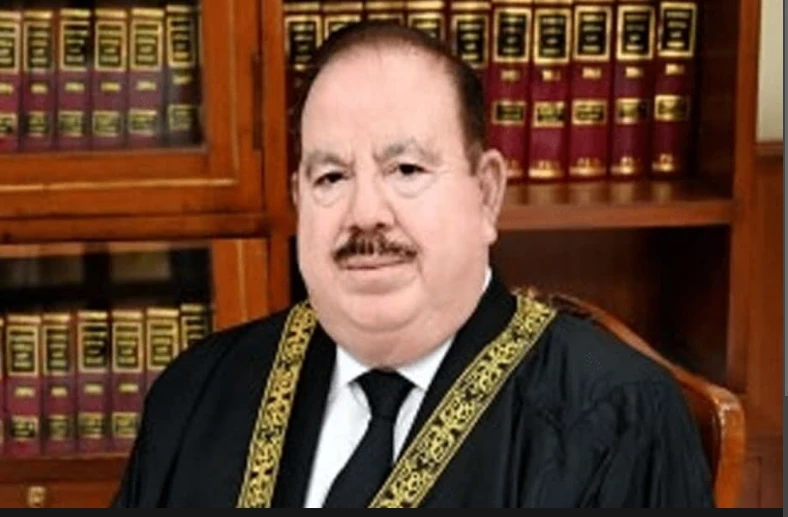Justice Tariq Masood quits SC bench hearing appeals against military trials verdict

Stay tuned with 24 News HD Android App

A six-judge bench of the Supreme Court which was due to take up a set of intra-court appeals (ICAs) against declaring the military trials of civilians as unconstitutional today was collapsed after Justice Sardar Tariq Masood dissociated himself from the bench on a petitioner's objection, reported 24NewsHD TV channel.
On January 26, the apex court had constituted a six-member bench led by Justice Tariq Masood and comprising Justices Aminuddin Khan, Muhammad Ali Mazhar, Hasan Azhar Rizvi, Musarat Hilali and Irfan Saadat Khan for hearing the ICAs.
After dissolution of the bench on Monday, the matter was again referred to the judges committee for formation of a new bench.
During the hearing of the intra-court appeal today before the same bench, petitioner former chief justice Jawad S Khawaja's lawyer Khawaja Ahmad Hasan raised an objection to the bench.
The counsel demanded reconstitution of the bench and requested to refer the matter to the judges committee mandated with the fixation of cases before apex court benches under the Supreme Court (Practice and Procedure) Act 2023.
Justice Tariq Masood barred Lahore High Court Bar Association (LHCBA) counsel Hamid Khan from presenting arguments. “If we don't have to hear the case then don't give arguments,” the judge told the counsel.
He said an objection was raised seeking his recusal from the bench.
In its first hearing of the matter earlier, the six-member bench had conditionally suspended its prior decision to invalidate military trials for 103 civilians till a final judgment on the matter. The SC stated that the ongoing military trials of the civilians, accused of involvement in attacks on army installations during the unrest following the arrest of former premier Imran Khan on May 9 last year, would carry on for now but the final decision would be subject to its final ruling.
The majority 5-1 verdict stemmed from a string of ICAs filed by the caretaker federal government and the interim provincial governments of Balochistan, Punjab and Khyber-Pakhtunkhwa challenging the previous unanimous ruling nullifying the military trials.
Last year on October 23, the apex court had declared the trials of civilians in the military courts as unconstitutional and held that 103 persons and others who may be placed in connection with the events arising from May 9th and 10th May could be tried by criminal courts established under the ordinary or special law of the land.
The 25-page detailed judgment, written by Justice Muneeb Akhtar, had the majority decision of four judges.
The bench was headed by former Justice Ijazul Ahsan and comprised of Justice Muneeb Akhtar, Justice Yahya Afridi, former Justice Mazahir Ali Akbar Naqvi and Justice Ayesha A Malik.
The detailed judgment also included an additional 48-page note by Justice Ayesha Malik. Justice Ayesha held that the offences under the Official Secrets Act were triable before the ordinary criminal courts, which guarantees fair trial, due process and independence as mandated by the Constitution. However, none of the 103 persons detained were reported for offences under the said Act. “Yet applications were made under Section 549 of the Code of Criminal Procedure, 1898 (Cr.P.C.), for their delivery to military authorities.
On Dec 28, 2023, in a letter to the three-member Judges Committee of the Supreme Court, former Chief Justice Jawad S Khawaja objected to the bench headed by Justice Sardar Tariq Masood for hearing intra-court appeals against the decision to stop the trial of civilians in military courts.
He requested that a seven-member larger bench should be formed according to seniority, under the chairmanship of Chief Justice Qazi Faez Isa, to hear the appeals.
He also claimed that he got the right to object to the bench as he was the petitioner in the main case, and that Justice Sardar Tariq Masood could not hear the case due to his earlier opinion on the matter.
Reporter Amanat Gishkori
